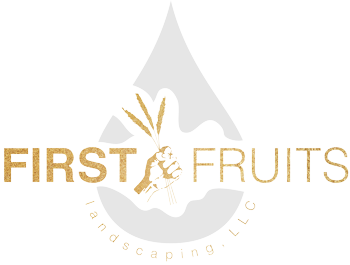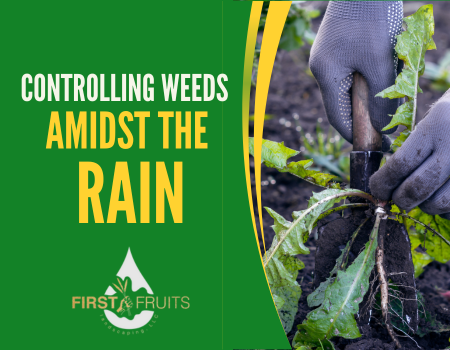Washington state is renowned for its lush landscapes and verdant gardens, but with its abundant rainfall comes the inevitable challenge of weed management. Weeds not only detract from the aesthetic appeal of your garden but also compete with your plants for essential nutrients and water. Luckily, with proper techniques and a little know-how, you can effectively maintain weed control even during the rainy season, ensuring that your lawn and garden are looking pristine.
Tips to Control Weeds in the Rain
Mulch, Mulch, Mulch!
Mulch is a gardener’s best friend when it comes to weed suppression. By blocking light and rain from reaching weed seeds, mulch creates an inhospitable environment for their growth. Additionally, mulch acts as a protective barrier for plant roots against the elements and helps conserve soil moisture.
For optimal weed control, lay down a 2- to 3-inch layer of mulch on your landscape and garden beds. Consider using materials like bark mulch or shredded leaves for effective weed suppression. Corrugated cardboard placed underneath the mulch can provide an extra barrier against weed growth.
Time Your Weed Pulling
Believe it or not, rainy days are actually opportune moments for weed removal. The moisture softens the soil, making it easier to extract weeds, roots and all. This is particularly effective for perennial weeds, as their roots tend to release from the soil more readily after rainfall.
The technique of “pre-sprouting” involves waiting until immediately after a substantial rain to weed your garden. This strategic timing capitalizes on the weeds’ propensity to emerge following rainfall, allowing you to tackle them when they’re most vulnerable.
Explore Natural Remedies
If traditional weed control methods prove insufficient, consider turning to natural remedies as alternatives to herbicides. However, exercise caution, as some homemade solutions may also harm desirable plants if not used judiciously.
One popular natural weed killer combines vinegar, salt, and liquid dish soap. The acetic acid in vinegar acts as a desiccant, drying out weed foliage upon contact. Salt disrupts the osmotic balance within the plant cells, leading to dehydration and eventual death. Meanwhile, the dish soap helps the solution adhere to the weed’s surface.
To prepare this concoction, mix equal parts vinegar and water, add a generous amount of salt, and a few drops of liquid dish soap. Transfer the mixture to a spray bottle and apply directly to weeds on a sunny day for maximum effectiveness.
Preventative Measures
Prevention is key to long-term weed management. In addition to mulching and regular weeding, consider implementing strategies to minimize weed proliferation in your garden.
- Companion planting: Choose companion plants that naturally deter weeds or shade the soil, reducing weed seed germination.
- Crop rotation: Rotate your crops annually to disrupt weed life cycles and prevent the buildup of weed populations in specific areas.
- Soil improvement: Maintain healthy soil by regularly amending it with organic matter. Healthy soil promotes vigorous plant growth, which can outcompete weeds for resources.
Try integrating these strategies into your gardening routine and you’ll find that you can enjoy a weed-free landscape even amidst Washington’s rainy season. With diligence and the right techniques, you’ll be able to maintain a thriving garden that flourishes despite the challenges posed by weeds. Not up to the task? No worries! Contact our team of professional landscapers today to help transform your outdoor space into a true oasis.

